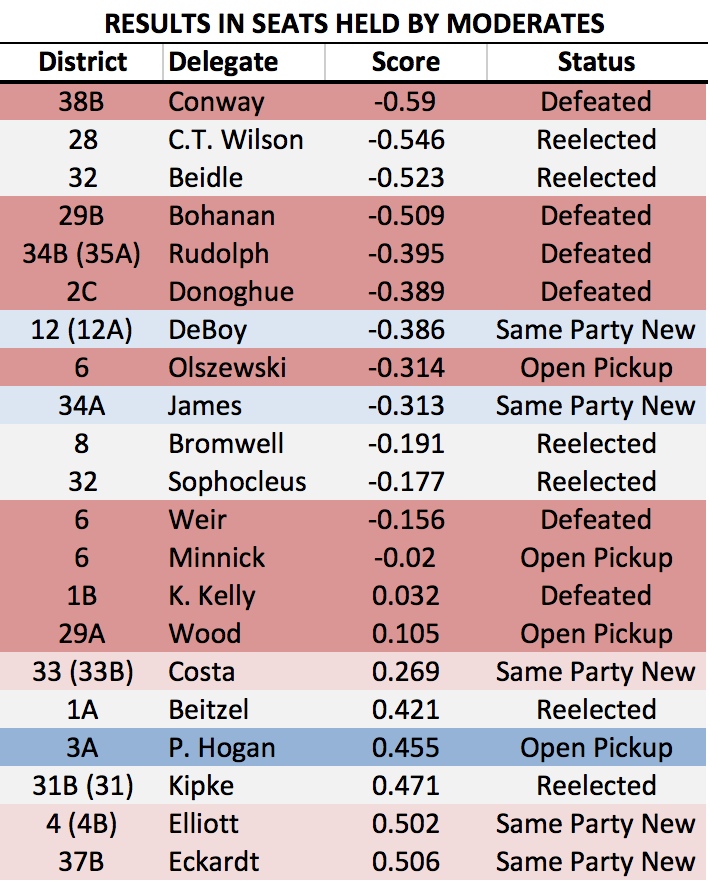Moderates in the House of Delegates did not have a good election. The following is a list of the 21 most moderate delegates going into the 2014 elections, according to Boris Shor and Nolan McCarty’s measure of state legislator ideology:
Among the 21 moderates, only six ran and won reelection. All but one seat that flipped parties was held by a moderate. Seven moderate incumbents went down to defeat: six Democrats and one Republican. Additionally, three seats vacated by Democratic incumbents were picked up Republicans.
The replacement of nine moderate Democratic incumbents by Republicans will push the Democratic Caucus to the Left. It may also make the Republican Caucus more conservative; junior members of both parties have tended to be less moderate than senior members of their party in Congress.
All of the nine seats picked up by Republicans were in territory that leans Republican in other elections, which should make it easier for the GOP to hold them in the future and for their delegates to take conservative positions. In safe seats, candidates fear primaries more than general elections.
Five moderates were replaced by new members of the same party. In three cases (Districts 4, 33, and 37B), these seats are safe for the Republicans. One more district also leans strongly, if slightly less securely, toward the Democrats. As a result, it would not surprise if the four new members were less moderate than their predecessors. (Only District 34A, previously held by Democratic Del. Mary-Dulany James, is tough territory for their party.)
Previously, the ideological distance between the most moderate Democrat and Republican was only 0.164. Based on who is left, that gap would rise to 0.598, leaving the two parties more clearly divided into clean camps than before the election.

